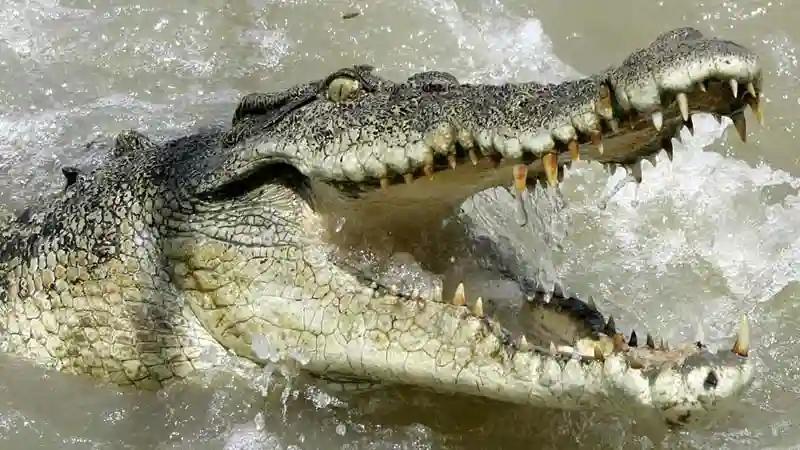Africa-Press – Zimbabwe. In the tranquil fishing community of Gatche Gatche, nestled along the shores of Lake Kariba, a chilling legend has taken root.
Residents speak in hushed tones of a crocodile with supernatural powers—a creature that has allegedly claimed the lives of more than 21 people, primarily fishermen.
But it’s not the sheer number of victims that sets this reptile apart; it’s the gruesome manner of their demise.
Locals have christened this elusive giant reptile as “Macheni” because of the crocodile’s peculiar taste for human private parts.
Victims consistently lose these intimate body parts, while the rest of their bodies remain untouched.
Some even speculate that Macheni is no ordinary predator. Instead, it serves as a weapon, wielded by an individual possessing potent “magical powers.”
This mysterious figure allegedly employs the harvested private parts for dark arts.
Kariba residents, who shared their accounts with H-Metro, insist that Macheni is no mere crocodile. They believe it is a phantom, slipping through the murky waters undetected.
Officials from the Zimbabwe Parks and Wildlife Management Authority (Zimparks) have reportedly struggled to track down and eliminate this enigmatic creature.
Residents also allege that most, if not all, of the attacks have occurred in a concentrated region.
Tinashe Farawo, Zimparks spokesperson, acknowledges the community’s belief that Macheni transcends the natural realm. He said:
A total of 32 lives were lost from crocodile attacks in Lake Kariba, between Sanyati River and the Lake Kariba Dam Wall, between 2016 and 2023.
Between 2016 and 2023, 38 crocodiles were eliminated during the same period. Over 40 crocodiles were also captured and translocated.
As from 2019, legal and illegal gill netting fishers in Gatche Gatche area assumed that crocodile attacks taking place in the Tsetse Island general area were caused by one crocodile.
While the fact that the attacks are caused by only one crocodile remains an assumption, efforts have been made by Zimparks to assess the area and to eliminate suspect crocodiles in the general area.
The community has named the alleged crocodile “Macheni.” Reasons for the assumption that the crocodile attacks were caused by one crocodile emanated from the fact that most of the attacks were taking place in one general area.
“The fishers have a belief that the crocodile is a spiritual crocodile and this is the reason they named it “Macheni,” since they claim that the crocodile used to only remove testicles from men after the attack.”
Farawo said that their observations have revealed that the crocodile attacks in this area were generally taking place at night. He added:
Gill netting at night is not allowed, it is actually conducted by poachers. The area of concern is not a legal fishing ground, which they also called “Macheni Bay”. Illegal fishers usually delay giving reports of attacks and this makes follow up difficult.
The reasons why most of the attacks were taking place in this general area were that many people were flocking to this area to do illegal fishing, this is probably because they were enjoying good fish catches in this area.
It is also a fact that crocodiles also feed on fish and they also tend to flock areas with more fish and this has caused this conflict.
More than 7 crocodiles have been eliminated in the general area between 2020 and 2023, however, the Gatche Gatche community has maintained that the alleged “Macheni” is still alive.
Several attempts to eliminate the alleged crocodile were done way after the crocodile attacks, since all reports are received days after the attacks, making the searches difficult.
We have also called upon the Gatche Gatche community to help to identify the alleged crocodile so that we eliminate it once it has been spotted.
We are continuing working with the fishers association to identification of the alleged crocodile.
Farawo said between December and January this year, Zimparks intensified anti-poaching patrols at Tsetse Island and removed all poachers, who periodically put illegal shelters.
He said since then, no person has been attacked by crocodiles at the alleged “Macheni Bay”.
Farawo added that once the specific crocodile is positively identified, Zimparks will take decisive action to eliminate the threat it poses.
For More News And Analysis About Zimbabwe Follow Africa-Press






